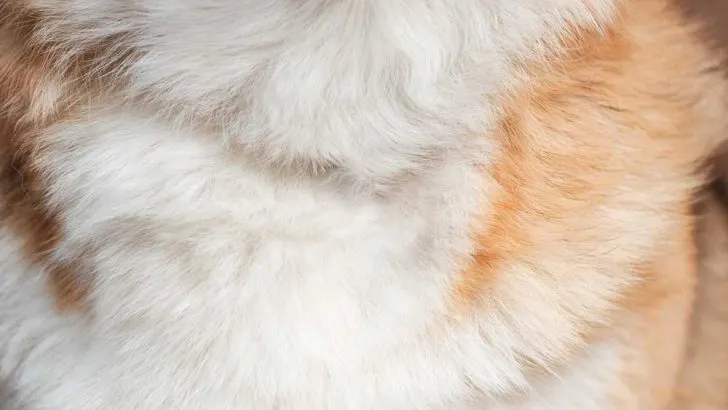Taking care of Corgis can be wildly specific. Some things that work for virtually all dogs, don’t work for Corgis and vice versa.
So, Corgis have specific fur that requires special care to maintain. Grooming your Corgi is rather easy, but there are some things to know in advance.
For example, why does my Corgi have dandruff? How can you get rid of dandruff in Corgis? Continue reading our article to find all about dandruff, Corgis, and proper grooming!
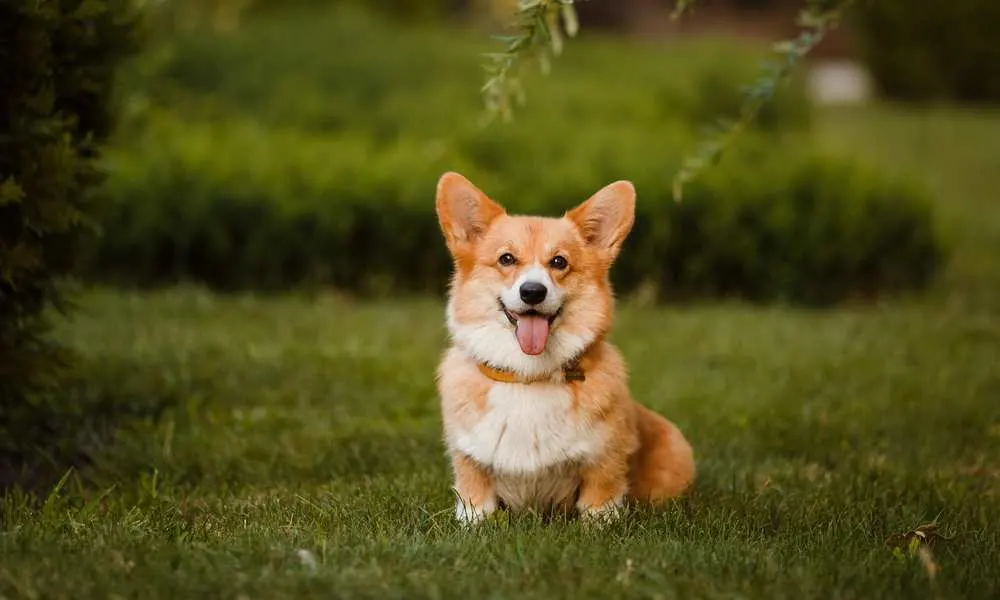
Why Does My Corgi Have Dandruff?
Firstly, let’s say that there are so many different reasons why your Corgi has dandruff. There is no one-size-fits-all answer!
In essence, dandruff is made of white flakes – dead skin cells. Dandruff can even sometimes be a symptom of an underlying issue.
If your Corgi has light fur, it can be difficult to spot dandruff at once. You can sometimes see it on the couch when your pooch gets up or when they leave your lap. Most commonly, dandruff in Corgis is a sign of skin irritation.
One of the things you should look for first is whether dandruff is all over the pup’s fur coat or in just one area. If it’s only one area with dandruff, it could be a sign that your pup came into contact with something irritating. Also, it could be a sign of an underlying infection or parasites.
Generally, if you do see dandruff you should contact your vet for help. You should contact the vet immediately if your pup has scaly patches, hair loss, and reddened skin.
Believe it or not, a balanced diet with plenty of necessary nutrients can go a long way for your Corgi. Sometimes, some dietary supplements can help, too!
We will get into every reason and how to treat your Corgi. Do note that seeing actual results can take some time, so be patient when taking care of your pup! So, let’s get into it!

Seborrheic Dermatitis
Seborrheic dermatitis is a medical condition that can affect humans as well as dogs. This condition affects the baby skin cells to travel to the skin’s surface too fast. Since the agent that holds skin cells together is pretty weak, the cells flake away and create dandruff.
Seborrheic dermatitis may be accompanied by greasy skin in dogs because the grease glands are overactive with seborrheic dermatitis. There is no clear cause for dermatitis, but some dog breeds are genetically more prone to getting this skin condition. Those breeds are American Cocker Spaniel, West Highland White Terrier, Doberman Pinscher, and English Springer Spaniel.
If you are worried your pup has seborrhea, consult your vet about treatments. Chances are that your vet will prescribe a special shampoo to use. Do note that you should abide by your vet’s recommendation about the frequency of use – excessive use may result in some unwanted side effects.

Cheyletiella Mites
Cheyletiella mites are small parasites, also referred to as “walking dandruff”. They start living in the Corgi’s fur coat and they lay eggs there. When you look at it, it looks just like regular dandruff.
Check for mites if your pup scratches, licks, or bites the skin. Look for hair loss, redness, and scaly patches on the Corgi’s skin. Walking dandruff is highly contagious and they are easily spread to other pets, even cats and rabbits. Luckily, only 20% of humans in the household are affected by walking dandruff.
These parasites are white and when you look at them closely, you can see them with the naked eye. Like most parasites living in the fur, they cause extreme itchiness. So, it’s very uncomfortable for your pet and it should be treated as soon as possible.
The treatment is easy, but consult the vet about all the steps you should take to get rid of mites. It can be very difficult to get rid of them, so your vet might treat your pup with some topical treatments.
Once you spot walking dandruff, go to the vet immediately. The vet will cover the Corgi’s fur in a mite-killing ointment, but you may require dips and other treatments, as well. The treatments should be applied up to twice a week, for up to six weeks.
If you think your Corgi has walking dandruff, you should check other pets for mites, too. Also, you will have to treat your entire home with a pesticide that kills mites, fleas, and other parasitic animals.
EXTRA TIP: wash all the blankets and pillows your pup lies on. Clean the carpets and any other fabric your pup may have gotten into.
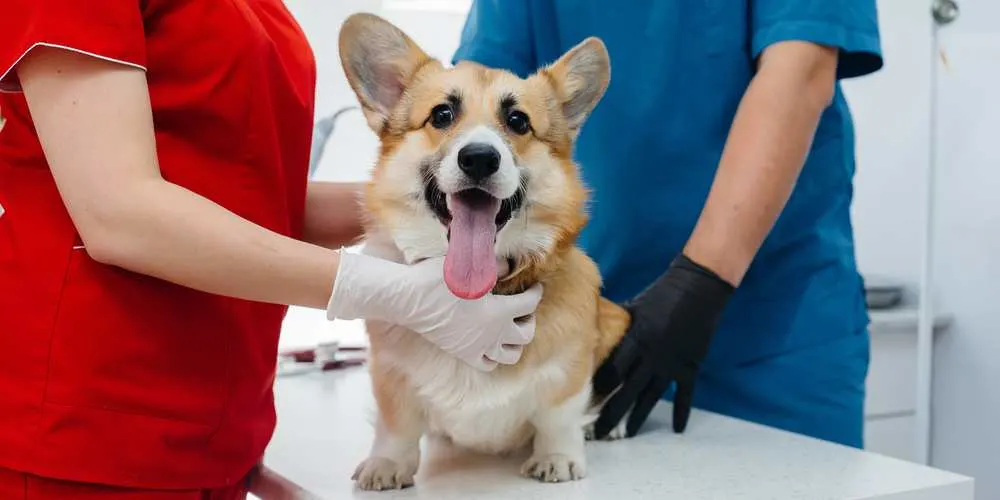
Health Conditions
Various bacterial or fungal infections can cause dandruff. These infections are a vicious cycle because they can be super difficult to get rid of because they keep recurring. Bacterial and fungal infections wear down the skin until it’s not able to protect itself from external factors.
These infections most commonly cause hot spots and greasy patches – but they can cause flaky skin and dandruff. Either way, if you see any of these symptoms, address your concerns with your vet. They will prescribe some topical ointments or even oral antibiotics to help your pup fight off these infections.
Also, various auto-immune diseases can cause dandruff. If that is the case, the dandruff is a sign that something is going on with your pet, along with at least a few other symptoms. If you notice that your Corgi is lethargic and has dandruff, it’s time to visit the vet.
It could be a sign of a serious disease. Since Corgis are usually already so energetic, spotting lethargy is easy!

Low Humidity
Low humidity can affect your Corgi’s fur – especially if you live in an area with hot and dry weather, or you keep the heating high. The air could be stripping your Corgi’s skin of moisture and natural oils.
Corgis are naturally used to living in extremely humid weather, so their skin is suffering when the air is too dry. Dry skin is prone to flakiness and it can become itchy – so your pup can scratch into oblivion.
Scratching can also worsen the existing skin issues, so keep that in mind as well. Some moisturizing dog shampoo can help if the weather is too dry for your pup’s liking. If the heating and your pup don’t agree – there are two things you can do.
The first one is – lower the temperature, but we have to keep in mind that it might make you uncomfortable. So, consider investing in an air humidifier – it could add the humidity in the room and take care of the problem pretty easily.
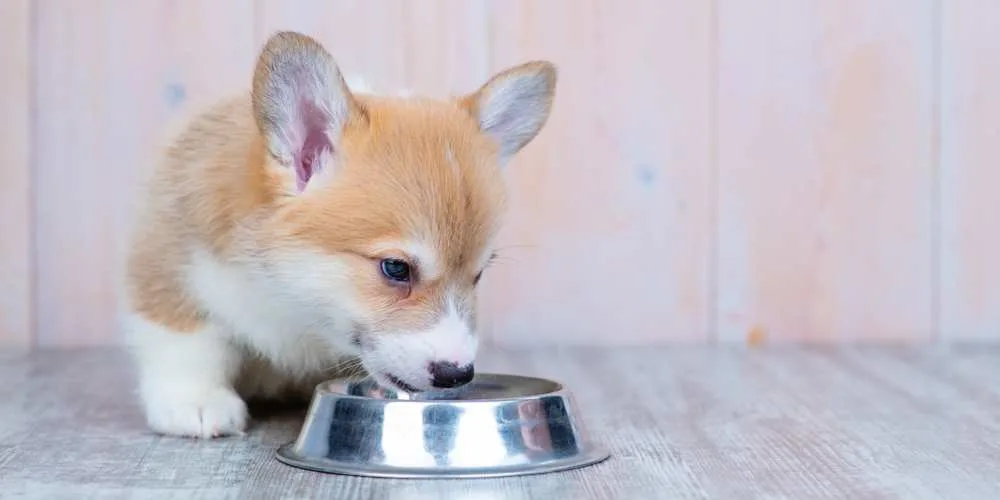
Poor Diet
Lack of essential nutrients can affect the whole body, not just the skin. A poor diet can result in malnutrition and various health issues associated with malnutrition.
If the diet lacks fats, vitamins, and minerals, the skin and the fur will suffer a lot. Every living this suffers without the necessary nutrients, and Corgis are the same.
If you cannot figure out what is the best way to feed your pup, consider simply investing in some quality commercial dog food. If that doesn’t help, consult the vet so they can determine what the Corgi’s diet is lacking.
The vet may recommend buying some dietary supplements to help out your Corgi’s diet. Keep in mind that at least a few weeks need to pass to see the improvement.
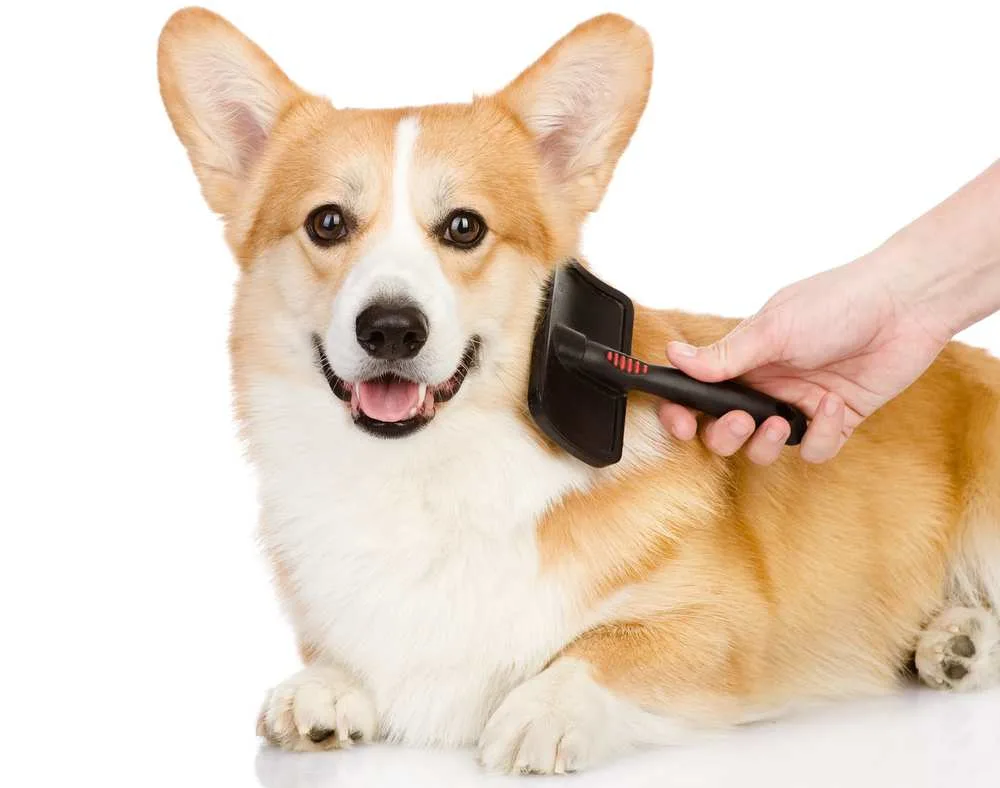
Grooming Issues
Many people are not aware of how to properly groom their Corgi. While some dog breeds require frequent baths, Corgis do not.
So, if you wash your Corgi too often, it could result in your Corgi’s skin becoming too dry and flaky. Frequent baths can dry out the skin, but a wrong choice of shampoo can, too.
Make sure to pick out a good quality shampoo, even if it costs a lot of money. In reality, Corgis need a bath once a month or once every two months, so you won’t go through the shampoo too fast.
The only exception to this rule is if your Corgi gets very dirty. The truth is, Corgis have a special, double fur coat that doesn’t get wet or muddy easily.
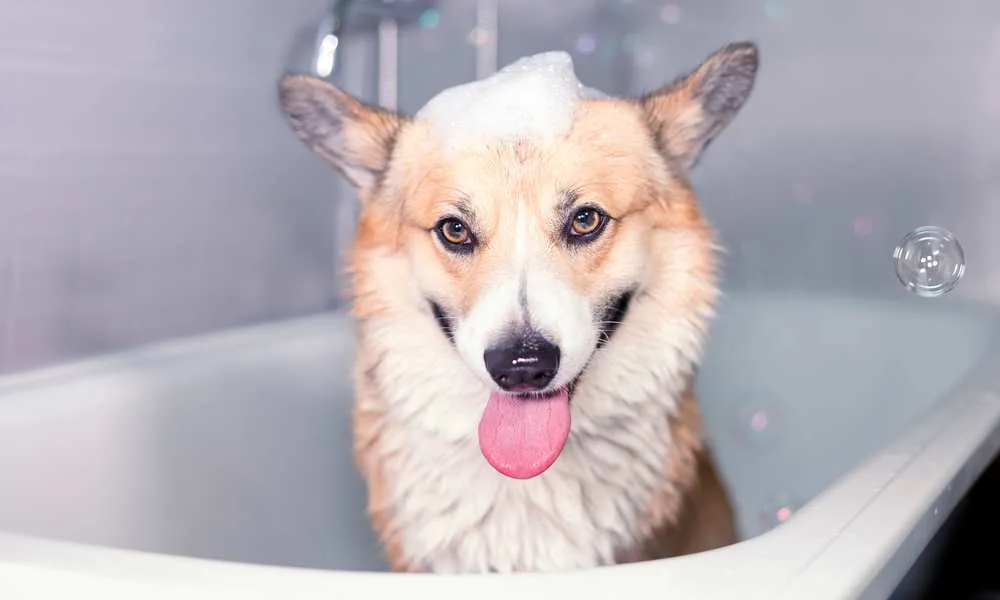
How To Get Rid Of Dandruff In Corgis?
Once you spot dandruff in Corgis, you should try to take action as soon as you can. Fighting dandruff can be a lengthy and time-consuming process, remember that.
However, if you do start on time, you might catch dandruff before it advances. It will be much easier to fight off if you spot it on time! Also, you will spare your Corgi lots of discomforts!
The first thing that you should implement is daily brushing. Invest in a good brush for your Corgi’s hair and set some time aside each day to brush your pup.
The brushing will help distribute the natural oils throughout the fur coat. The brushing can stimulate blood supply to the skin, which will help the skin stay healthy.
Also, try to improve your pup’s diet as much as possible. Stick to high-quality foods and invest in some nutritional supplements. See the vet about implementing Omega 3 and Omega 6 supplements.
They will recommend the proper amount for your pup and make sure that they are getting enough of other necessary nutrients. Moreover, make sure that your pet has enough water throughout the day and fill the bowl with water as soon as you see it’s empty.
The most important thing you need to buy is special pet shampoo for dandruff. These shampoos are special because they have agents that help re-moisturize the skin. The shampoo also relieves flakiness, irritation, and itchiness.
No matter how tempting it is, do not use dandruff shampoo intended for humans. Those shampoos are too harsh for Corgis, and they may have a reverse effect on your Corgi and make dandruff even worse.
Check the local pet shop for a soap-free, all-natural shampoo for dandruff. These shampoos may be expensive, but Corgis don’t need to be washed too often. Meaning, it will not make a significant change in your spendings even if you opt for a high-end shampoo.
You should always check with the vet about the possible ways to treat dandruff in Corgis. Since dandruff could be a sign of an underlying condition or disease, the vet should check out your pup to rule that out.
If the dandruff is just an irritation, the vet may prescribe an ointment or spray to ease the symptoms. Dandruff is itchy and it could make your Corgi anxious because he’s feeling the need to scratch a lot. Excessive scratching can lead to your pup injuring himself and making open wounds!
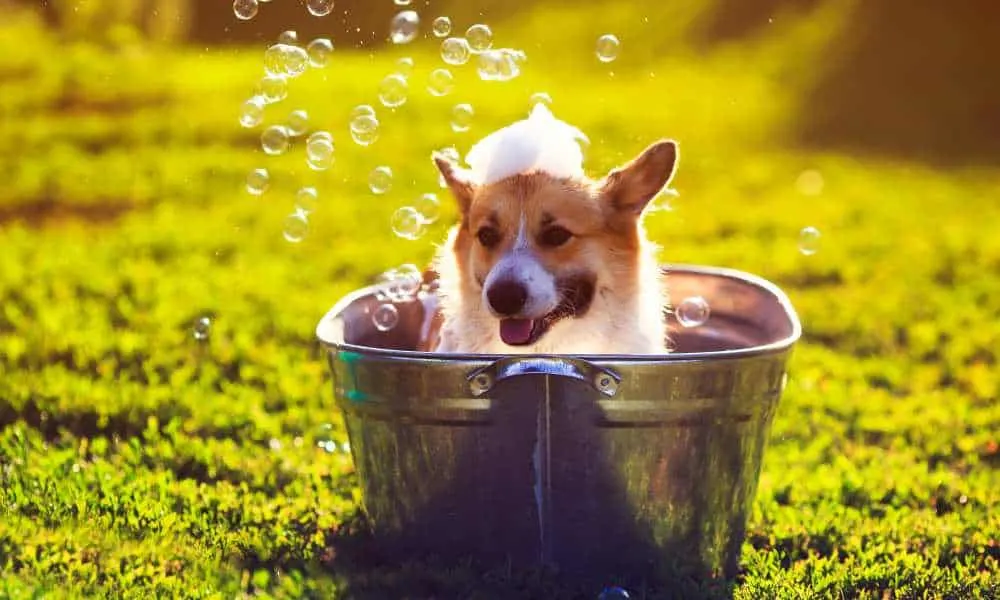
How To Prevent Dandruff In Corgis?
Getting rid of any condition is always harder than simply preventing the condition from occurring in the first place. The same thing is with dandruff. Getting rid of dandruff can be a rather long process because some infections can be difficult to cure.
For example, fungal infections can last a long time and they can re-occur many times, even if some time passes in between. The first thing about dandruff prevention is using a good quality shampoo.
Even if it seems tempting, don’t wash your Corgi with anything rather than a pet shampoo. Using baby or children’s shampoo may seem tempting, but it could be too harsh for your Corgi nevertheless.
Even if the specialized shampoo seems very expensive, keep in mind that one bottle can last you well over a year. As we already mentioned, Corgis need a bath once every month or once every two months.
Excessive baths can dry out your Corgi’s skin and cause dandruff to appear. Of course, if your Corgi is dirty because he was out in the woods, you should wash him when you get home.
Setting aside those situations, don’t make bathing your Corgi a weekly thing. The sure way to tell if your Corgi needs a bath is if he starts to smell a little!
Also, you should brush your pup daily to stimulate oil production and to help with shedding. Invest in a good brush that doesn’t tug on your Corgi’s fur. If brushing causes your pup pain, he will be opposed to brushing and he will try to run away from you as soon as he sees you with a brush!
One of the good things you can implement in your pup’s diet are Omega 3 and Omega 6 supplements. They can make your Corgi’s skin stronger and less prone to irritations.

Conclusion
To conclude, there are various reasons why your Corgi got dandruff. From a poor diet to the fact that your house may be too warm during the winter, the reasons are endless.
However, that doesn’t mean that having dandruff is harmless. Your Corgi may have a serious autoimmune disease, and dandruff could be just one of the symptoms.
If you do spot dandruff in your Corgi’s fur, check it out to rule out walking dandruff. Walking dandruff is highly contagious, and it can be difficult to get rid of. Either way, talk to the vet about the symptoms your dog is having.
They will know what steps you should take to make your pup feel better about the whole situation. After all, having dandruff is extremely uncomfortable for your Corgi and you should try to ease his symptoms as much as you can!

